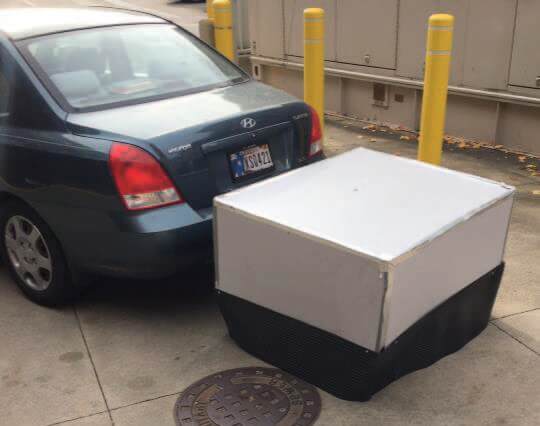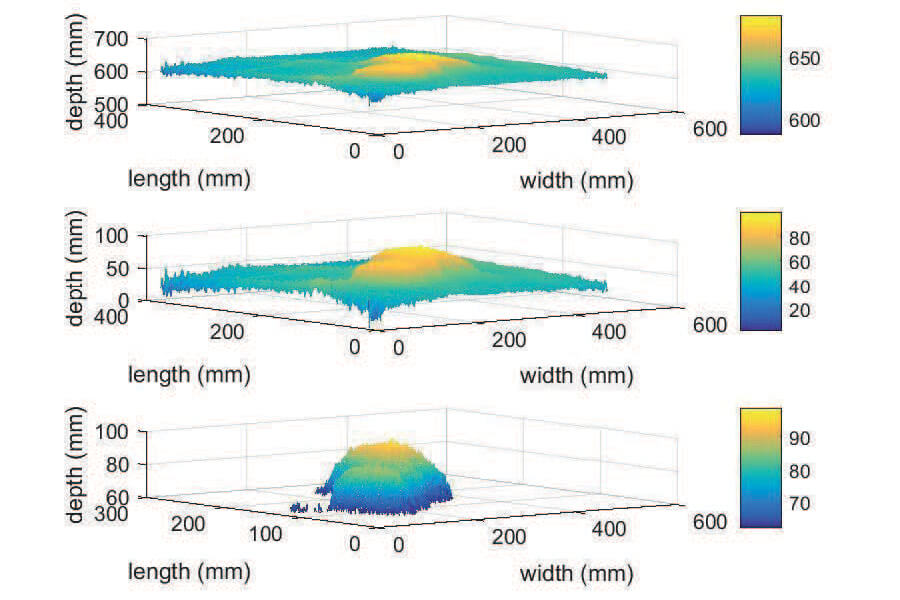CE's Jahanshahi EPICS team work on pothole detection
Assistant Professor Mohammad Jahanshahi is leading Purdue’s EPICS Smart City team, whose goal is to use available technology to improve city roads. The team is creating a device to scan roads for potholes and catalog them.
“The goal before us is to find an inexpensive solution to a costly problem for the city and its drivers,” Jahanshahi says. “There are existing machines and technology that can find and measure potholes, but the cost is significant and the data processing is not fully automated.”

A low-cost solution
The team modified a Kinect device, a motion-sensing mechanism that acts as a camera and sensor for video game playing, then combined it with an ultrasonic sensor and a GPS. The amalgamation of hardware is stored in a case and attached to the back of a vehicle.
Although a prototype is still in the development stage, the EPICS team has created and tested one with promising results. The team also has developed a program to read and display the information so that future city employees can read and track the information easily.
“It’s been pretty amazing to see where we’ve got to, so far," first-year engineering student Dan Hershberger says. "We’re getting very good data. Also, we’re learning from our mistakes and improving almost every day.”

Interdisciplinary teamwork
Hershberger says that another benefit from this EPICS project has been learning from other students who come from several different engineering schools at Purdue.
“I found myself learning so much from my teammates,” he says. “Everyone has a different perspective, and they bring unique skills to the table. You can’t help but learn something new after every session.”
Additionally, the Smart City EPICS team has developed an application for mobile devices that is expected to come out this spring. The app will enable users to report the location of a pothole or any other road damage, alerting the city to the necessity of a repair. The city will be looking out for the most frequent areas that are reported, as well as the most severe potholes that need to be repaired.
“As a teacher, this is the sort of creativity that really makes you proud,” Jahanshahi says. “To approach a solution like they did took an incredible amount of teamwork, research and cooperation. I very much look forward to seeing how the project progresses.”

Source: Detecting potholes
